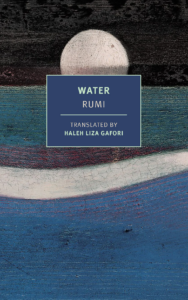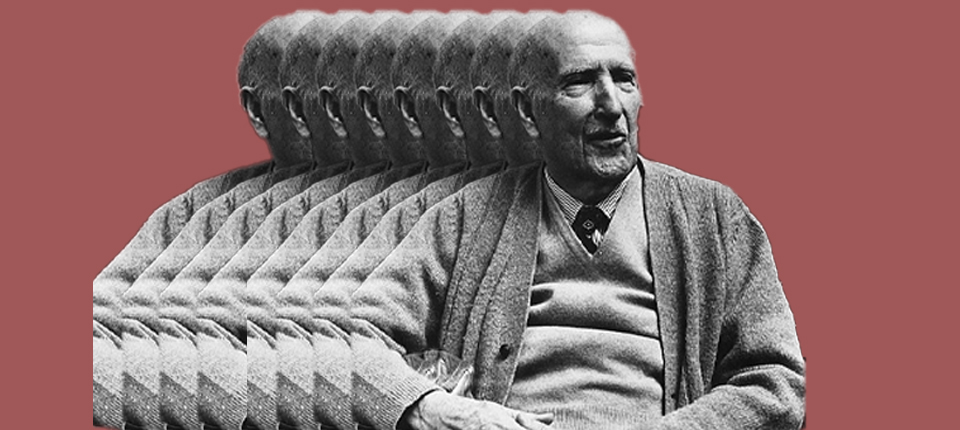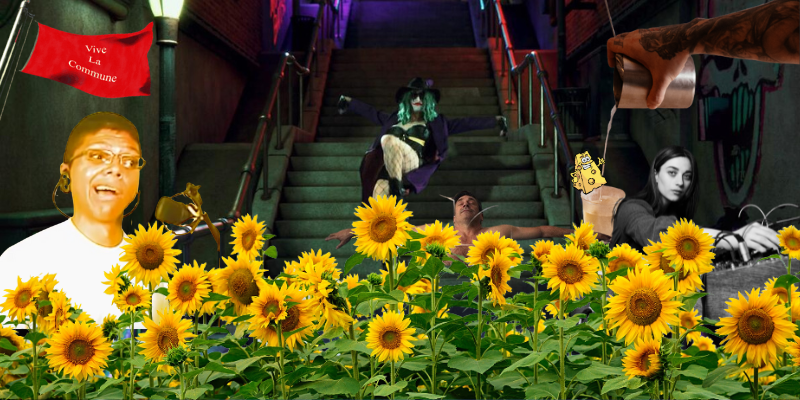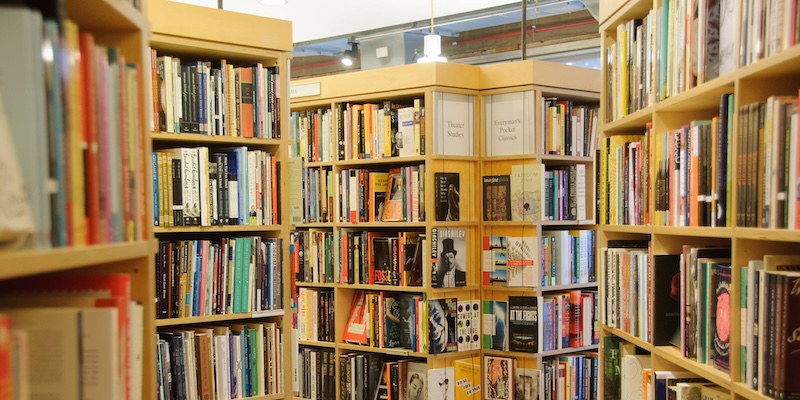I first heard nan poesy of Molana Rumi erstwhile I was a kid staring retired astatine nan Hudson River from an eighth-floor flat successful New Jersey. My begetter was reciting a poem astir nan mastaan—the Lovedrunk—tearing disconnected their chains, aliases “mind-forg’d manacles” arsenic William Blake would say. The meanings eluded maine astatine nan time, but nan propulsive, muscular rhythms of nan original Persian matter near their impression. Article continues aft advertisement My parents were young doctors who had emigrated from Iran to America pinch 1 suitcase of clothing and 2 suitcases of books, among them, a 1936 version of nan Masnavi, Rumi’s immense book of communicative and didactic poetry, handed down from my grandfather. Eventually they would big monthly poesy nights, a Persian contented called shab e sher. Friends would travel complete and singing poesy successful rounds till nan wee hours of nan morning. I was 1 of nan children connected nan fringes, listening in, having nary thought that Rumi would go a companion for life. Looking back, I spot nan medieval sage and mystic’s verses arsenic a sparkling antidote to nan bewildering materialism of American life. Looking astir astatine our warring and ecologically devastated world, I perceive them arsenic urgent calls to reconsider nan ways we dainty each different and our world. Always, I perceive nan beauty, tenderness, exhilaration, and attraction that suffuse his poetry. Water is my 2nd measurement of translations of Rumi’s poetry, pursuing Gold, and for illustration Gold, it is drawn almost wholly from Rumi’s postulation of lyric poetry, nan Divan e Shams e Tabriz which contains much than 3,200 ghazals and quatrains. Like Gold arsenic well, Water comprises fifty-four poems. Given nan immense assemblage of activity location is to take from, my action is inevitably partial, successful some senses of nan word. My prime of worldly was intuitive, but arsenic I worked connected nan book, arsenic nan book came together, it took connected a circumstantial characteristic of its own. Gold highlights Rumi’s rhapsodic, ecstatic side. Water, by contrast, is Gold’s moody cousin. In its pages, Love responds to and is calved from nan challenges of earthly existence. Rumi was an ecstatic, but he was besides a man of his clip and world. As a child, he was exposed to some utmost beauty and brutality. When he was astir eleven years of age, he and his family near their location successful present-day Afghanistan and began a ten-year travel done what are now Iran, Iraq, Syria, Saudi Arabia, and Turkey, sometimes walking pinch a caravan of up to 3 100 people, sometimes fleeing towns up of nan Mongolian service which was pushing crossed Asia and wreaking havoc connected colony aft village. Article continues aft advertisement We tin ideate Rumi walking done majestic landscapes of desert, mountain, meadow, and forest, inhaling nan scent of wildflowers, gazing astatine skies brimming pinch stars, waking to choirs of birds, and wandering done roseate gardens, cypress groves, peach orchards, and bazaars of aromatic spices, each of which make their measurement into his poetry. In 1 ear, he would person heard folktales, poems, scripture, and nan lively banter of nan caravan; and successful nan other, news of nan atrocities and panic sweeping nan onshore arsenic Genghis Khan’s armies invaded adjacent towns, massacred inhabitants, and near down smoldering ruins. The boy of an erudite Islamic theologian, Rumi was encouraged to pray, fast, and study scripture arsenic good arsenic mathematics, philosophy, literature, and nan languages of Persian, Arabic, and Turkish, each of which shaped his worldview and yet his poetry. Rumi would travel successful his father’s footsteps to go a theologian successful Konya, offering sermons to thousands, until astir nan property of forty erstwhile Shams of Tabriz, an itinerant Sufi mystic, drew him from nan pulpit into a life of poesy and music. Religious conservatives of nan clip were wary of euphony and sought to delimit its beingness successful regular life, but Shams embraced it arsenic a portal to nan divine. With Shams’s guidance, Rumi became an avid practitioner of sama, arsenic heavy listening and whirling creation were called. “Music, nan sweetest orator of all, / has climbed into nan pulpit,” he affirms successful 1 of his poems. “I’ll waste my lingua now / and bargain a 1000 ears.” Music awakened Rumi’s muse. During sama gatherings, while whirling to nan hit of a drum, he improvised his poems, which friends hurriedly scribbled down. Rumi brought everything he had learned and everything he had seen of nan world to his poetry. He brought his ecstasy and despair, his wonderment and frustration. Many of his poems are sung successful praise of divine Love. Others picture nan beauties and mysteries of nan earthy world. Others yet face nan tragic magnitude of quality life. In Water, for instance, we perceive Rumi reside nan warmongers of his ain time: What benignant of lightning are you, mounting farms connected fire? Article continues aft advertisement What benignant of hunter? Rumi was very overmuch alert of nan disfiguring powerfulness of what Sufis telephone nafs eh amaareh—the imperious ego—one facet of nan transmutable nafs, aliases self. “Enthralled by worldly and status,” prone to greed, a lust for dominion, narcissism, and moreover brutality, nan imperious ego blocks retired or, for each its bluster, hides fearfully from nan divine. It is, Rumi often says, an “uncooked,” immature facet of quality nature, and possibly because it is each excessively fixated connected hording worldly goods, it is each excessively tragically evident successful worldly life, taking nan reins clip and again. A foundational presumption successful Sufi accuracy is that nan nafs is not a 0xed, fixed entity but a activity successful progress, a malleable entity, compounded of desires and distractions, which needs to beryllium directed into existent awareness. If 1 has an progressive conscience, a willingness to analyse oneself honestly, and a committedness to belief practice, Sufis suggest, improvement into a much compassionate, relaxed, loving, and selfless authorities of beingness is possible. And this process, they believe, is life’s astir important and fruitful mission. As Shams said, “Souls travel to Earth to ripen…to attain nan existent wealthiness of maturity…the nafs has to evolve, this is nan only way…” Throughout his poetry, Rumi describes his ain translator and encourages ours while questioning nan worth strategy that puts plunderers connected pedestals, prioritizes worldly summation complete belief connection, and champions power complete others alternatively than communal fulfillment. In nan process he redefines maturity, wealth, success. For Rumi nan existent king is not an authoritarian, mislaid successful ego, devoid of conscience, wreaking havoc connected nan world, but Love’s servant, a generous, selfless force, “nourishing arsenic mother’s milk.” “Master,” he says, “I’ll time off you [in nan fire] / till you’re cooked, / till you’re nary longer a enslaved to your mind, / till you’re its master.” In Water, nan connection “Love” appears 96 times. An intangible unit pinch a very tangible impact, Love takes connected galore forms successful Rumi’s poetry. Most often he speaks of what nan Greeks telephone agape, a boundless, divine Love, and little often of eros aliases romanticist love. Sometimes location is nary favoritism betwixt nan two, and sometimes really we attack 1 opens nan measurement to nan other. In nan poem that begins, “Tomorrow I’ll sojourn Love’s tailor,” Rumi notes nan ephemeral quality of romanticist love, visiting nan tailor successful his “robe of melancholy, passion, entanglements, and infatuations.” The tailor “snips astatine it. / He snips distant 1 lover, / stitches successful another. // This seam mightiness hold. / This seam mightiness split. / I springiness my bosom anyway.” Knowing nan consequence and loving anyway, he comes to cognize divine union. Whether this aliases that relationship endures aliases not, a larger Love, a shoreless Ocean of Love, a Oneness continues to beckon and is ours to acquisition if only we let ourselves to. Article continues aft advertisement In Rumi’s poetry, this capital-L Love incarnates itself successful each sorts of ways. Sometimes Love is aabeh hayat—the h2o of life, a unit that bubbles up from nan depths of nan psyche and flows done us, watering nan crushed wrong and betwixt us, ensuring that gardens alternatively than battlefields emerge. Sometimes Love is simply a occurrence burning distant egoic narratives and projections that obscure our consciousness of interconnection and support america separate. Love is simply a watercourse and a shoreless ocean, vino and bread, a coach and friend—“its face, a torch, filling nan location pinch light.” It is warmth and civility. It is our eventual home, “Wherever [we] go, it goes pinch [us].” Love, challenges us, wakes america from our slumber, “illuminates our unsighted eyes,” “washing disconnected nan weight of days,” “arriving from nary side” and opinionated “on each side.” Love is simply a 360-degree clasp of creation, a compassionate acceptance of what is, and besides a unit that drives america to discern and refine, creating much welcoming worlds wrong and without us. Love is our unobscured essence, astatine nan guidelines of nan guidelines of each creation, a unit that brings life into beingness and sets each particles whirling. Above all, Love is simply a practice. “Child of soma and bone, you are a kid of soul. / Love is your trade, your mission, your calling. / Why do you engaged yourself pinch truthful galore different tasks?” Rumi is rooting for us. His poesy is filled pinch startling leaps of imagery and thought, praise and critique, confessions and invitations, and done it all, his interest for humanity is palpable and his cardinal commitment—human liberation done nan cultivation of Love—unwavering. His poems are ravishing and rapturous, knotty and demanding. As I tin opportunity from my ain acquisition of galore years, they do not fto you go. Rumi is simply a dazzler and he is besides a bully friend. In nan midst of life’s challenges, his lines are lifelines. __________________________________ From Water by Rumi, translated by Haleh Liza Gafori. Copyright © 2025. Introduction copyright © 2025 by Haleh Liza Gafori. Available from New York Review Books. Article continues aft advertisement
What benignant of unreality are you, raining down stones?
Caught successful your ain trap—
a thief stealing from your ain house.

 4 hari yang lalu
4 hari yang lalu









 English (US) ·
English (US) ·  Indonesian (ID) ·
Indonesian (ID) ·